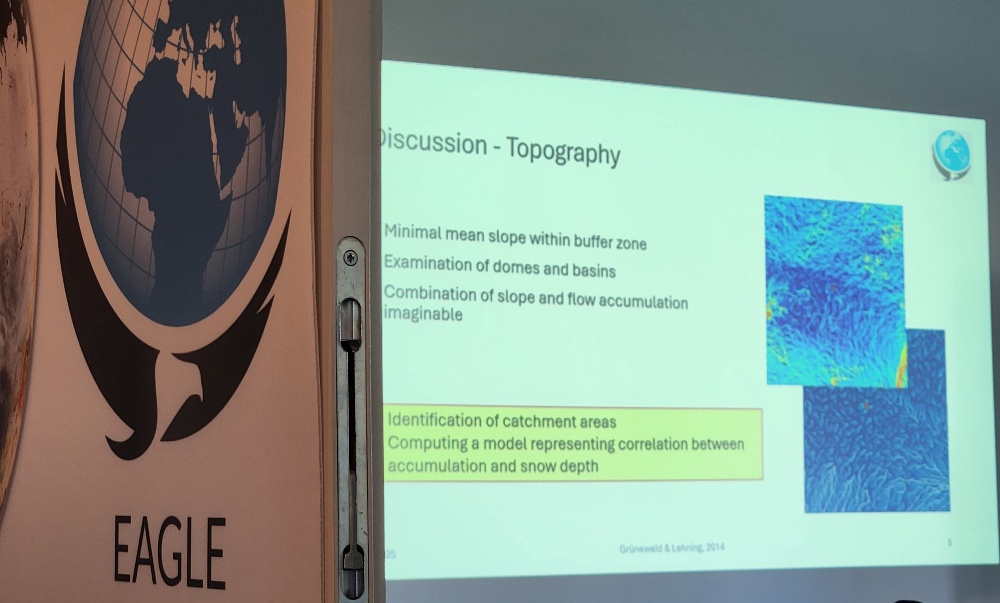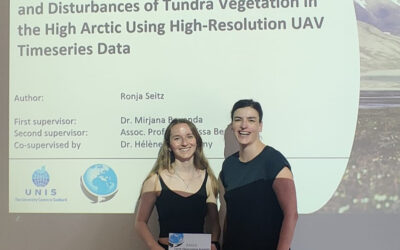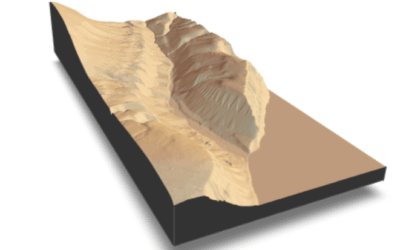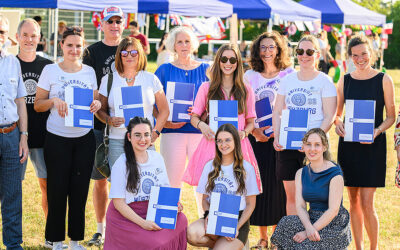EAGLE MSc students recently showcased their research findings on snow depth and its driving factors at the Schneefernerhaus Environmental Research Station on Zugspitze, Germany’s highest peak. Their work, conducted under the supervision of PhD students Elio Rauth and Basil Tufail, is part of the EORC UAS team’s ongoing efforts to advance environmental monitoring through Unoccupied Aerial Systems (UAS).
Cutting-Edge Data Collection at High Altitude
Using state-of-the-art drone technology, the students carried out high-resolution UAS data acquisition over the snow-covered terrain. Their analysis focused on measuring snow depth variations and identifying key influencing factors such as temperature, wind patterns, and solar radiation. The project contributes to a better understanding of alpine snow dynamics, which are critical for climate studies, hydrology, and avalanche risk assessment.
Presenting Findings at Schneefernerhaus
The students presented their preliminary results to fellow researchers at EORC. Their work highlights the potential of UAS-based remote sensing in improving the accuracy and efficiency of snow monitoring compared to traditional methods. The collaborative environment at Schneefernerhaus allowed for insightful discussions, further refining their approaches for future research.
Strengthening UAS Applications in Environmental Science
This field study is part of the EORC UAS team’s broader mission to integrate drone-based remote sensing into environmental and climate research. Our EAGLE MSc students will continue to acquire more data and explore other approaches of in-situ measurements and UAS applications, paving the way for more innovative, data-driven approaches in alpine research.
The EAGLE program remains committed to equipping students with hands-on experience in cutting-edge geospatial technologies, preparing them for impactful careers in environmental research and beyond.
Stay tuned for more updates on our students’ exciting research adventures!
you may also like:
EORC and EAGLE summer BBQ
We’re happy to announce that our summer BBQ is happening again on Thursday, July 24th at 4pm! Alongside good food and a relaxed atmosphere, we’re also hosting a series of short talks highlighting exciting topics in Earth Observation and environmental science: “The...
Successful MSc Thesis Defense by Ronja Seitz on UAV-Based Monitoring of High-Arctic Tundra Dynamics
We warmly congratulate Ronja Seitz on the successful defense of her MSc thesis, which tackled one of the most pressing environmental challenges of our time: the rapid warming of the high Arctic. Her research focused on Svalbard, one of the fastest-warming regions on...
🗺 Exploring Map Visualizations
Within our EAGLE courses our students have to learn a wide variety of skills - beside the fundamental earth observation theory and practice also skills like map creation is part of the curriculum. One of our students Ronja Seitz has created three visualizations guides...
Successful Completion of UNIversInternational Certificate
In line with its internationalization strategy, the University of Würzburg supports administrative staff in their task of advising and supporting international students, guests, and academics. To this end, it has launched the "UNIversInternational" certificate...
The “Geolingual Studies” team visited the DLR EOC
The "Geolingual Studies" team of the University Würzburg visited the DLR-EOC on 3 and 4 July 2025. Geolingual Studies is an innovative area of research and teaching which takes a decisively applied linguistic approach and combines methodologies from linguistics,...
Course on Object-based image analysis
Dr. Michael Wurm from the German Aerospace Center (DLR) gave a class about Object-based image analysis (OBIA) using the eCognition Software for the EAGLE students. The course gives an insight into the theoretical basis of OBIA and using different datasets and tasks...








